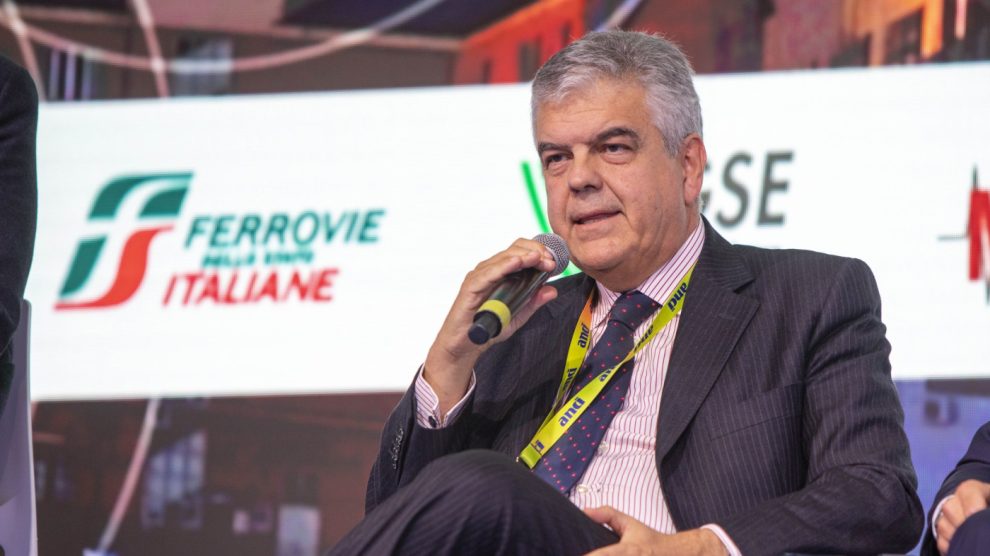FS’ plans to reshape rail travel across the EU. Italy’s State-owned train operator is drawing up plans to link some of the continent’s major cities with its leading high-speed services, leveraging the liberalisation of the trans-European rail transport market that kicked off in 2019.
- Having already connected Paris to Milan and entered the Spanish market with Frecciarossa trains linking the biggest cities, the group aims to operate a service between Paris and Barcelona.
- It’s also mulling a more ambitious Northern link connecting Paris, Brussels, Amsterdam and (eventually) Berlin, which are among the potentially busiest (and yet-to-be-fully tapped) EU rail routes.
Growing international attention. The group’s chief international officer Carlo Palasciano told the Financial Times that expanding eastwards from Paris – to Brussels and then Amsterdam – would be a natural extension of FS’ advanced-stage project to link Barcelona and the French capital. He then added that the company could eventually be in a position to operate a service up to Berlin.
- FS intends to consolidate and expand its early lead in the trans-EU sector by offering an alternative, higher-quality service that can prove a competitive alternative to air travel.
“Europe as a large domestic market.” Commenting on the FT’s piece, FS CEO Luigi Ferraris explained in an official note that the EU expansion is envisioned in the group’s ten-year Industrial Plan, which sets out to triple FS’ international turnover from the current €1.8 billion to over €5 billion by 2032. To get there, FS intends to invest €200 billion, most of which is earmarked to upgrade and modernise [Italy’s] rail and road infrastructure.
- Internationally, the liberalisation of the European railway market “opens up interesting prospects in the high-speed sector, as has already been the case for some time in local passenger transport, without forgetting the logistics sector,” continued the CEO, noting the company is well-positioned to export its technology and know-how.
A proven track record. The Frecciarossa trains operating in Spain and France are “travelling with very high fill rates, and in a few years they will also be able to quickly connect Milan with Munich, in collaboration with Germany’s DB. But other routes are also conceivable,” noted Mr Ferraris, recalling FS just won a tender of new local transport concessions in the German Land of Leipzig with Netinera (a local train operator controlled by the Italian group) and in Holland with Qbuzz buses.
- As for the Brussels-Amsterdam route, he concluded, it’s all part of the same objective: “to make the train a more attractive option for passengers travelling between major European capitals, thus developing increasingly sustainable mobility. A green mission that also concerns freight transport.”
- Developing intermodal logistics and the modal switch from road to rail is one of FS’ main goals at the EU level, “as witnessed by the recent acquisition in Germany of Exploris, a rail freight transport holding company, by our Tx Logistics […] which makes us the second freight transport operator in Germany.”





